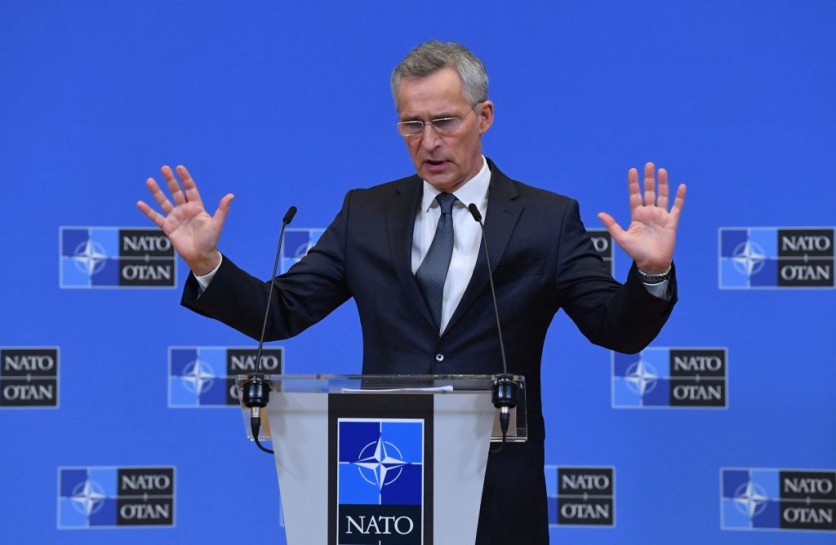A North Atlantic Treaty Organization (NATO) official said that a "serious" cyber attack could trigger its collective defense clause amid the tension between Russia and Ukraine. According to the recent report, this kind of attack can be considered as an armed attack in some way.
NATO Collective Defense Clause

In an early report by Reuters on Tuesday, March 1, a NATO official said that a cyberattack could result in the declaration of its Article 5 or the collective defense clause following Russia's successive attacks on Ukraine.
While it's possible because security concerns are hopping all over the place, this case has been "largely hypothetical" so far.
In an interview with the news site, the NATO official clarified that the effect of "significant malicious cumulative cyber activities" can count as an armed attack at the very least.
"We will not speculate on how serious a cyberattack would have to be in order to trigger a collective response. Any response could include diplomatic and economic sanctions, cyber measures, or even conventional forces, depending on the nature of the attack," the official added.
Regarding the extent of the attack, it does not matter whether it's small or large enough to prompt NATO's Article 5 since it's a decision that the military alliance will establish.
Following the reports about cyberattacks in Ukraine, both the United States and the United Kingdom were keen about the possible consequences that the hackers could face.
In connection to these reports, some cybersecurity researchers believed that Russia has a connection to a group of cybercriminals behind the big cyberattacks that occurred last year.
Apparently, the experts were concerned that the hackers behind the Colonial Pipeline attack were linked to Russia.
Related Article: Russian Hackers Take Advantage of Windows Flaw to Spy on NATO, Ukraine and Foreign Governments
No Clear Guidelines For NATO's Response
In the same report, Mark Warner, the US Senate Intelligence Committee Chairman noted that there were no "clear" guidelines for the response of NATO in case a cyberattack hits a particular country.
To add, he cited the impact of a Russian cyberattack that affected Poland, one of the NATO members. As such, the incident caused power disruptions in the region which affect healthcare systems and roadways.
Meanwhile, Tech Times reported that an FBI official warned the local governments and businesses of ransomware attacks amid the Western crisis.
According to the two sources who knew the situation, the ongoing conflict in the West might affect several sectors in the long run.
How to Stay Protected Against Cyberattacks Amid Conflict
According to CNBC, there are a few ways you can protect yourself from potential cyberattacks amid the continuous upheaval in Ukraine.
The news site wrote that people should be on high alert for scams in the form of fake donations, phishing emails, and suspicious files.
In addition, you also need to have a password with special characters. It suggested the user use a passcode that is 12 to 15 characters long. It should include a combination of capital and small letters and symbols.
To guarantee your safety, you can rely on having a good password manager like in the case of Google or Apple.
It's also important to use updated antivirus software, as well as not trust unreliable Wi-Fi sources. Most importantly, don't splatter your personal details online and always check your credit for potential third-party activities.
This article is owned by Tech Times
Written by Joseph Henry




